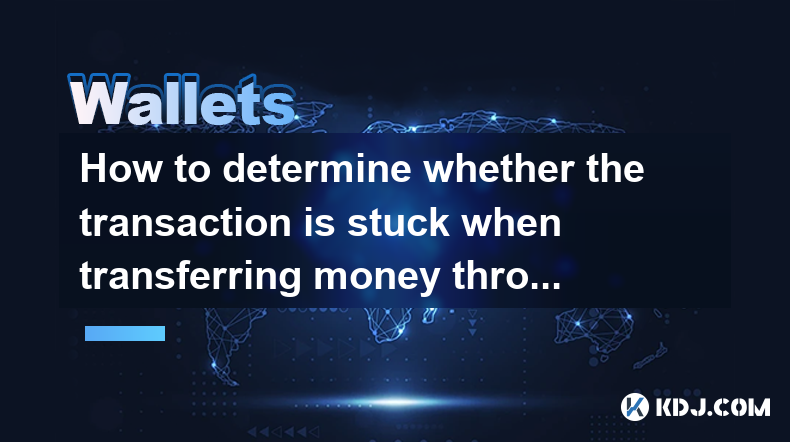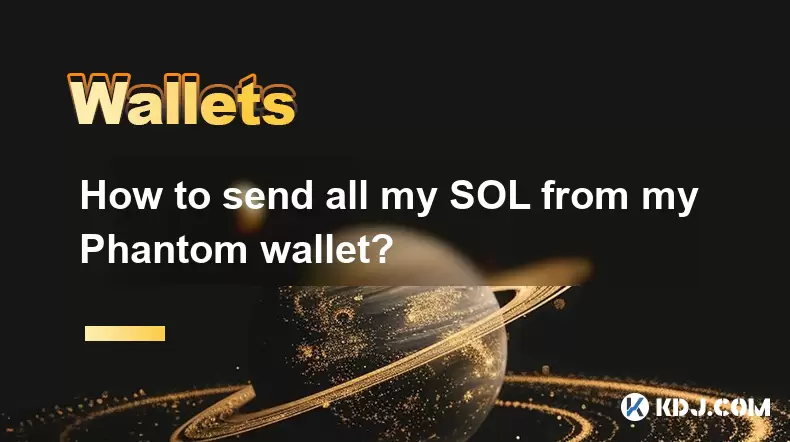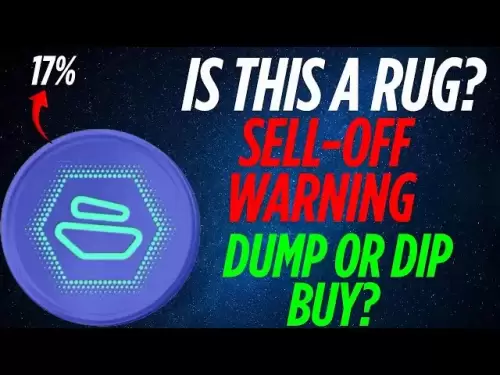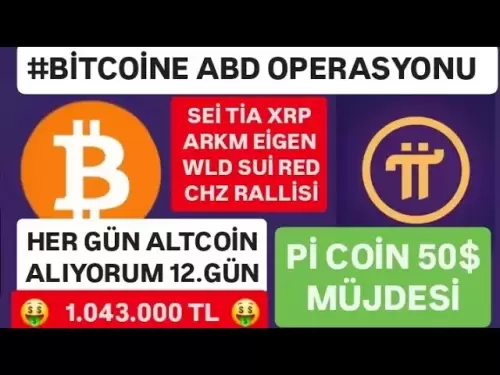-
 Bitcoin
Bitcoin $108,708.8110
0.60% -
 Ethereum
Ethereum $2,561.6057
1.91% -
 Tether USDt
Tether USDt $1.0001
-0.03% -
 XRP
XRP $2.2795
0.57% -
 BNB
BNB $662.2393
1.00% -
 Solana
Solana $153.1346
3.74% -
 USDC
USDC $1.0000
0.00% -
 TRON
TRON $0.2877
0.97% -
 Dogecoin
Dogecoin $0.1710
3.93% -
 Cardano
Cardano $0.5871
1.61% -
 Hyperliquid
Hyperliquid $39.6663
1.68% -
 Sui
Sui $2.9032
0.79% -
 Bitcoin Cash
Bitcoin Cash $496.1879
1.71% -
 Chainlink
Chainlink $13.5807
3.01% -
 UNUS SED LEO
UNUS SED LEO $9.0777
0.61% -
 Stellar
Stellar $0.2514
4.51% -
 Avalanche
Avalanche $18.1761
1.86% -
 Shiba Inu
Shiba Inu $0.0...01173
1.72% -
 Toncoin
Toncoin $2.8010
-4.23% -
 Hedera
Hedera $0.1594
3.21% -
 Litecoin
Litecoin $87.0257
-0.53% -
 Monero
Monero $319.1217
1.79% -
 Polkadot
Polkadot $3.3853
0.68% -
 Dai
Dai $0.9999
-0.01% -
 Ethena USDe
Ethena USDe $1.0003
0.02% -
 Bitget Token
Bitget Token $4.3420
-0.97% -
 Uniswap
Uniswap $7.3772
1.39% -
 Aave
Aave $286.6277
5.61% -
 Pepe
Pepe $0.0...09994
2.33% -
 Pi
Pi $0.4589
1.76%
How to determine whether the transaction is stuck when transferring money through Ethereum wallet?
Ethereum transactions can get "stuck" due to network congestion or insufficient gas fees. Use a blockchain explorer (like Etherscan) with your transaction hash (TXID) to check its status; a pending transaction for an extended period may indicate a problem.
Mar 23, 2025 at 02:21 pm

How to Determine Whether a Transaction is Stuck When Transferring Money Through an Ethereum Wallet
Transferring cryptocurrency, especially on a network like Ethereum, can sometimes feel like waiting for paint to dry. Network congestion and high gas fees can lead to transactions appearing "stuck," leaving users in a state of uncertainty. This article will guide you through identifying and understanding stuck Ethereum transactions.
First, understanding what constitutes a "stuck" transaction is crucial. A transaction isn't necessarily stuck just because it's taking a long time. Ethereum's network speed varies significantly depending on network congestion. A slow transaction is different from a genuinely stuck one. A truly stuck transaction is one that remains pending indefinitely, neither confirming nor failing.
To check the status of your transaction, you'll need your transaction hash (TXID). This alphanumeric string uniquely identifies your transaction on the blockchain. You'll find this in your wallet's transaction history. Once you have the TXID, you can use a blockchain explorer like Etherscan.io or similar services.
Using a blockchain explorer is the most reliable method for determining the status of your Ethereum transaction. Paste your TXID into the explorer's search bar. The explorer will show you the transaction's status – pending, confirmed, or failed. A "pending" status might indicate a slow transaction, while a "failed" status means the transaction was unsuccessful. If the transaction remains pending for an extended period, it's a strong indication that it might be stuck.
Several factors can cause an Ethereum transaction to get stuck. High gas fees are a common culprit. If you set your gas fee too low, miners might prioritize other transactions with higher fees, leading to your transaction remaining pending. Network congestion, a large number of transactions competing for processing, can also significantly delay confirmation times.
Another potential issue is an incorrect recipient address. Double-check the address you entered to ensure accuracy. Even a single incorrect character can render your transaction irrecoverable. Furthermore, some wallets might have issues, causing transactions to fail or appear stuck. Try restarting your wallet or using a different one if possible.
If you suspect your transaction is truly stuck, there are a few things you can attempt. However, it's important to remember that many of these are not guaranteed to work, and you should proceed with caution.
- Wait: Sometimes, patience is the best approach. Network congestion can eventually ease, allowing your transaction to be processed.
- Increase Gas Fee (with caution): You can try broadcasting the same transaction again with a significantly higher gas fee. This increases the likelihood that miners will prioritize your transaction. However, this doesn't guarantee success, and you might lose the initial gas fee.
- Contact Your Exchange/Wallet Provider: If you used a centralized exchange or wallet service, contact their support team for assistance. They may be able to help resolve the issue.
Understanding the reasons behind a stuck transaction is key to resolving the problem. Network congestion is often the primary culprit, but issues with gas fees, incorrect addresses, or wallet malfunctions can also cause delays or failures. Always double-check your information before initiating a transaction.
Frequently Asked Questions:
Q: How long should I wait before considering a transaction stuck?
A: There's no set timeframe. Network conditions vary. However, if a transaction remains pending for several hours or even a day, especially during periods of normal network activity, it's cause for concern.
Q: What happens if my transaction is truly stuck?
A: Unfortunately, in many cases, a truly stuck transaction means the funds are effectively lost. The chances of recovery depend on the specific cause and the resources available.
Q: Can I cancel a pending Ethereum transaction?
A: You can't directly cancel a pending transaction. You can try resubmitting it with a higher gas fee, hoping the new transaction will supersede the old one. However, this doesn't guarantee success, and you'll likely lose the gas fee from the original transaction.
Q: Is there a way to recover funds from a stuck transaction?
A: Recovery is difficult and depends on the cause. If it's due to a simple error like an incorrect address, recovery might be impossible. If it's due to a wallet issue, contacting the wallet provider might be helpful.
Q: How can I prevent transactions from getting stuck?
A: Always use a reputable wallet, double-check recipient addresses, monitor network congestion before sending large transactions, and set appropriate gas fees, slightly above the average suggested fee. Consider using a transaction accelerator service to help prioritize your transaction.
Q: What are gas fees and why are they important?
A: Gas fees are transaction fees paid to miners for processing transactions on the Ethereum network. Higher gas fees incentivize miners to prioritize your transaction, reducing the risk of it getting stuck. However, excessively high fees can also be costly.
Q: What is a blockchain explorer, and how does it help?
A: A blockchain explorer is a website that allows you to view transactions and blocks on a blockchain. By inputting your transaction hash, you can see the status of your transaction (pending, confirmed, or failed). It provides crucial information for troubleshooting.
Disclaimer:info@kdj.com
The information provided is not trading advice. kdj.com does not assume any responsibility for any investments made based on the information provided in this article. Cryptocurrencies are highly volatile and it is highly recommended that you invest with caution after thorough research!
If you believe that the content used on this website infringes your copyright, please contact us immediately (info@kdj.com) and we will delete it promptly.
- Ripple, XRP, and AI Tokens: Is Ruvi AI the Next Big Thing?
- 2025-07-08 05:30:12
- Crypto Investment: BlockDAG, Litecoin, and the Solana Meme Coin Mania
- 2025-07-08 06:10:12
- Altcoins in Focus: BlockDAG, Litecoin, and the Shifting Crypto Landscape
- 2025-07-08 05:35:12
- BNB's Bullish Breakout: Riding the $600 Support Level Wave
- 2025-07-08 04:55:13
- Solana ETF on Hold: SEC Delay and Crypto Regulation Scrutiny
- 2025-07-08 06:10:12
- Altcoin, Date, Price: Navigating the Crypto Bill & Meme Coin Mania
- 2025-07-08 06:15:12
Related knowledge

How to cancel a pending transaction in Phantom wallet?
Jul 03,2025 at 07:21pm
Understanding Pending Transactions in Phantom WalletA pending transaction in the Phantom wallet occurs when a user initiates a transfer or interaction with the Solana blockchain, but it hasn't yet been confirmed by the network. This can happen due to various reasons such as low transaction fees, network congestion, or incorrect gas settings. It's import...

How to see the estimated value of my tokens in Phantom wallet?
Jul 04,2025 at 12:21am
What is Phantom Wallet?Phantom wallet is one of the most popular cryptocurrency wallets designed for the Solana blockchain. It allows users to store, send, receive, and manage various tokens built on Solana, including SPL tokens and NFTs. The wallet offers a user-friendly interface, making it accessible for both beginners and advanced users in the crypt...

How to lock my Phantom wallet extension?
Jul 03,2025 at 11:14am
What Is the Phantom Wallet and Why Lock It?The Phantom wallet is a popular non-custodial cryptocurrency wallet designed for interacting with the Solana blockchain. Supporting both browser extensions and mobile apps, Phantom allows users to store, send, receive, and stake SOL tokens, as well as interact with decentralized applications (dApps). Securing y...

Does Phantom wallet offer two-factor authentication (2FA)?
Jul 03,2025 at 09:00am
Understanding Phantom Wallet and Its Security FeaturesPhantom wallet is a widely used non-custodial cryptocurrency wallet that supports the Solana blockchain. It allows users to store, send, receive, and interact with decentralized applications (dApps) seamlessly. As security is a top priority for any crypto wallet user, security features like two-facto...

How to send all my SOL from my Phantom wallet?
Jul 06,2025 at 10:00am
Preparing to Send SOL from Your Phantom WalletBefore initiating any transaction, it is crucial to ensure that your Phantom wallet is fully set up and connected to the correct network. Phantom supports multiple networks, but for sending SOL, you must be on the Solana blockchain. Confirm this by checking the network indicator in the top-right corner of th...

What is "rent" on Solana and how does it affect my Phantom wallet?
Jul 02,2025 at 08:35pm
Understanding 'Rent' on SolanaIn the context of Solana, the term 'rent' refers to a storage fee that users pay for maintaining data on the blockchain. Unlike Ethereum, where storage costs are paid once via gas fees during contract deployment, Solana implements a recurring cost model to ensure efficient usage of network resources. This means that any acc...

How to cancel a pending transaction in Phantom wallet?
Jul 03,2025 at 07:21pm
Understanding Pending Transactions in Phantom WalletA pending transaction in the Phantom wallet occurs when a user initiates a transfer or interaction with the Solana blockchain, but it hasn't yet been confirmed by the network. This can happen due to various reasons such as low transaction fees, network congestion, or incorrect gas settings. It's import...

How to see the estimated value of my tokens in Phantom wallet?
Jul 04,2025 at 12:21am
What is Phantom Wallet?Phantom wallet is one of the most popular cryptocurrency wallets designed for the Solana blockchain. It allows users to store, send, receive, and manage various tokens built on Solana, including SPL tokens and NFTs. The wallet offers a user-friendly interface, making it accessible for both beginners and advanced users in the crypt...

How to lock my Phantom wallet extension?
Jul 03,2025 at 11:14am
What Is the Phantom Wallet and Why Lock It?The Phantom wallet is a popular non-custodial cryptocurrency wallet designed for interacting with the Solana blockchain. Supporting both browser extensions and mobile apps, Phantom allows users to store, send, receive, and stake SOL tokens, as well as interact with decentralized applications (dApps). Securing y...

Does Phantom wallet offer two-factor authentication (2FA)?
Jul 03,2025 at 09:00am
Understanding Phantom Wallet and Its Security FeaturesPhantom wallet is a widely used non-custodial cryptocurrency wallet that supports the Solana blockchain. It allows users to store, send, receive, and interact with decentralized applications (dApps) seamlessly. As security is a top priority for any crypto wallet user, security features like two-facto...

How to send all my SOL from my Phantom wallet?
Jul 06,2025 at 10:00am
Preparing to Send SOL from Your Phantom WalletBefore initiating any transaction, it is crucial to ensure that your Phantom wallet is fully set up and connected to the correct network. Phantom supports multiple networks, but for sending SOL, you must be on the Solana blockchain. Confirm this by checking the network indicator in the top-right corner of th...

What is "rent" on Solana and how does it affect my Phantom wallet?
Jul 02,2025 at 08:35pm
Understanding 'Rent' on SolanaIn the context of Solana, the term 'rent' refers to a storage fee that users pay for maintaining data on the blockchain. Unlike Ethereum, where storage costs are paid once via gas fees during contract deployment, Solana implements a recurring cost model to ensure efficient usage of network resources. This means that any acc...
See all articles

























































































